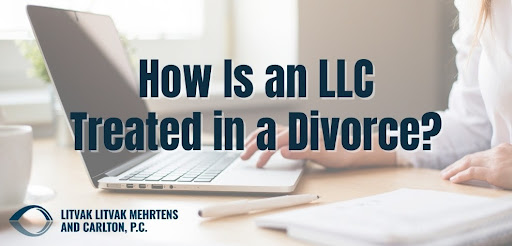Father Rights Colorado Attorney
The Denver law firm of Litvak Litvak Mehrtens and Carlton P.C. takes pride in being a father rights Colorado practice that focuses on defending dads in family law cases. We fight for equality and for an equal chance for dad’s to stay an integral part of your children’s lives after the divorce.
Advocating For Support of Divorced Fathers
Children flourish when they have both parents’ love and support in their life. Unfortunately, sometimes the mother of the child or an unfavorable court ruling estranges fathers from their children. Our father rights Colorado attorneys help fathers defend their right to involvement in the their children’s lives.
Is Colorado a 50/50 Custody State?
Colorado is not a 50/50 state when it comes to child custody arrangements. Family court judgments account for the best interests of the children.
How Does Child Custody Work in Colorado?
While many states distinguish between joint and sole custody, Colorado does not. The court uses the term “parental responsibility” for physical or legal custody . If a parent has less than 90 overnight visits with the child, the court will usually consider the other parent to be the primary parent. The court considers you and the other parent to have shared parenting responsibility if you have an equal number of overnight visits with the child.
However, the process of negotiating child custody is more than deciding where a child sleeps at night. It is a complex process that can involve multiple factors including relocation issues, domestic violence or child abuse, visitation, child support, and establishing parental responsibility.
In Colorado, child custody is lies in two categories: parenting time (physical custody) and decision-making (legal custody).
Parenting Time (Physical Custody)
This sort of custody is basically refers to the person with whom the child lives. “Physical custody” also implies responsibility for the child’s physical, emotional, and social needs (e.g. food, shelter, community involvement, school transportation).
Here are examples of situations where one parent may receive more time with a child than the other:
- One parent prefers to spend little (or no) time with their children.
- One parent is less “fit” than the other, with a history of domestic violence or substance misuse.
- Work schedules of parents.
- The child is an teen who expresses his or her desires.
- The geographical location of the parents and the distance between them.
Typically, physical custody can be split for parents who live close to each other.
Decision-Making (Legal Custody)
Legal custody pertains to parents’ ability to make decisions about a child’s upbringing. This includes how a child is educated, the religion he or she is raised in, and non-emergency healthcare decisions.
Most courts prefer parents share custody, even if a child spends most of their time with one parent. However, shared legal custody is not always in the best interests of the child.
What is in the Child’s Best Interest?
The key criterion by which courts will create a child custody arrangement is what is in the “best interests” of the child. If the court decides that one parent should have sole legal and physical custody, this power will be granted only to that parent.
Custody isn’t a winner-take-all scenario, thankfully. The belief that a child’s health is best maintained by both parents’ presence is endorsed by state law. The child’s noncustodial parent is the parent the child does not live with, while the resident parent is referred to as “custodial.”
As long as a child is mature enough to have an independent opinion, Colorado family court judges will listen to his or her wishes. The wishes of the child are taken into account, however the court makes the final decision.
Factors such as safety and health, needs for emotional and developmental support, the ability to parent, and any history of domestic violence in the parents’ home are used.
What Rights Do Fathers Have?
Fathers rights in Colorado include rights equal to mothers in raising their children. During the divorce process, the court considers both the father’s and mother’s engagement in the lives of their children. As a father, this means you have an equal right to make fair and just decisions about custody of the child, parenting time, child support, and spousal maintenance.
You must be able to prove that your proposed custody arrangement is in your children’s best interests. This helps maximize your time with them. The more active you are in the day-to-day activities of your children’s lives, the better off you’ll be, and honestly, it’s healthier for them. You should assist with homework and be active in picking up and dropping the children off at school, sporting events, and other activities. If you are already separated, this is especially important.
There are, however, a multitude of tools and apps available that use modern technology to help former couples efficiently co-parent their children. “Our Family Wizard” is one of them. It helps organize communication between the parties and shows compliance or non-compliance with court orders.
How Do I Establish Paternity in Colorado?
The term “paternity” in Colorado refers to the legal fatherhood status of a kid. The issue of paternity often affects unwed parents. This is because state law dictates that a child born into a marriage assumes the mother’s spouse as the father. If this is not the case, father rights in Colorado establish after the law settles paternity. In Colorado, there are two techniques to establish paternity.
Signing and submitting a “Voluntary Acknowledgement of Paternity” form to the court is the easiest way for a couple to establish paternity for a child. Consent to this form legally determines the father, and his name added to the birth certificate after its submission. The man who willingly assumes fatherhood takes on all legal fathers rights Colorado and responsibility for the child’s upbringing and care.
A paternity suit in court is the second and more difficult way to establish paternity. Individuals can file a paternity action to determine the child’s father. Any of the following individuals have the ability to file a paternity action in Colorado under state law:
- A child who has reached the age of eighteen
- With the assistance of a personal representative, a minor under the age of 18
- The mother of the child
- Any man who claims he is the child’s father
- A county’s social services department
- The Colorado Department of Human Resources
- Anyone allowed to pursue a paternity case, including minors, the incarcerated, and the deceased.
File a paternity action any time between the time a child is born and the age of eighteen. If the child requests the action themselves, they have until the age of 21 to make their case.
Why Do I Need a Father Rights Colorado Attorney?
The mother is often the primary caregiver in custody battles. Neglected or not properly enforced fathers rights frequently result. In the state of Colorado, dads who do not receive the rights or support they should during their child custody case can seek the professional assistance of an attorney who specializes in fathers rights Colorado and child custody. These attorneys are experienced in the state’s parental rights and fathers’ rights laws, as well as the rules of child custody. These attorneys often help fathers get the time and attention they seek and deserve with their children. Securing and enforcing reasonable child support payments is also a priority the father is the child’s primary custodian.
Custody Lawyer Near Me
Our fathers rights Colorado lawyers in Denver assist you no matter your marital status. Litvak Litvak Mehrtens and Carlton P.C. are here to help guide you through the process. Contact our experienced father rights Colorado attorneys to discuss your options. Schedule a consultation by calling our Denver office at 303-951-4506, or complete our online intake form here.






